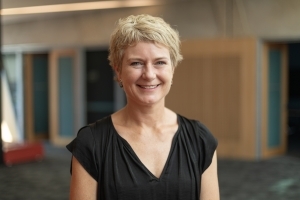
An update on our research and early results
Hi, I’m Larissa Bartlett. I’ve been busy working behind the scenes here at the Wicking Centre to plan and support the research activity that takes place in ISLAND. It’s a great honour to be involved in this ambitious, important public health project that has – as its main purpose – the goal of reducing the future incidence of dementia in Tasmania. The ISLAND research program kicked off in October 2019 and we have now collected detailed information from over 8,000 Tasmanian residents about their dementia risk-related knowledge and behaviours. About half of our participants have gone on to complete the annual surveys in October 2020 and again last year, and many have also done our thinking and memory assessments and provided a blood sample for research analysis. This multi-source data from a diverse sample of Australians aged 50+ is an incredibly valuable research resource. We can now start to use this information to investigate the relationships between health behaviours, demographic factors and the functional and biological signals of brain health. As we embark on the next few years of this 10-year project, we hope to keep all our research participants engaged in the study, so that we can track the influence of changes in knowledge and behaviours on the future risk of developing dementia. What we learn from ISLAND is not only relevant to our future here in Tasmania, it will also help guide health policy and practice around Australia and beyond. We are a bit excited to reveal some first-cut early results from our ISLAND research! Please join us on April 27th, for an interactive evening webinar on the evening before our Hobart-based Brain Health Expo. You can register for the webinar via this link. I want to take this opportunity to thank every ISLAND research participant for taking the time to provide the data we use in our research. We hope you are feeling better informed and able to take action to maximise your own brain health, and the information in your personal Dementia Risk Profile report, our newsletters and – if you’ve done it – the Preventing Dementia online course is proving to be useful for you. We’re looking forward to sharing the effects of the program on dementia risk that appear to be arising as a result of your involvement in the ISLAND Project. p.s. If you are an ISLAND research participant who hasn’t been back lately to do our assessments, you can stay involved by responding to the next research invitation. We’d love to welcome you back!
|